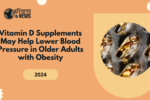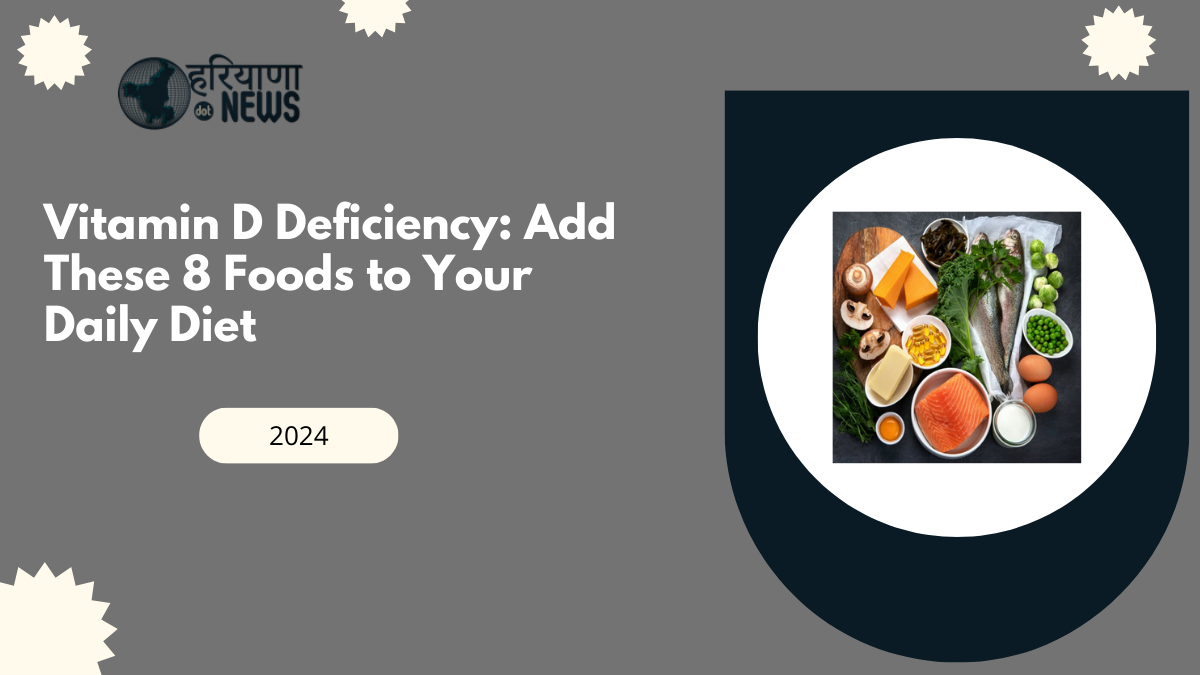Vitamin D plays a crucial role in maintaining bone health, supporting the immune system, and ensuring proper cell growth. Often referred to as the “sunshine vitamin” because our bodies can synthesize it with exposure to sunlight, many people still suffer from Vitamin D deficiency. Limited sun exposure, lifestyle factors, and dietary choices often lead to inadequate Vitamin D levels. To combat this deficiency, adding certain foods to your daily diet can significantly help.
Understanding Vitamin D Deficiency
Vitamin D deficiency occurs when your body doesn’t get enough of the vitamin through sunlight or dietary sources. This can lead to a variety of health issues, including:
- Weakened bones, increasing the risk of fractures and osteoporosis.
- A compromised immune system, leading to increased susceptibility to infections.
- Fatigue and mood swings, potentially contributing to depression.
Some common symptoms of Vitamin D deficiency include bone pain, muscle weakness, and fatigue. If left untreated, it can lead to more severe conditions such as rickets in children and osteomalacia in adults.
Why Adding Vitamin D-Rich Foods is Important
For those who cannot rely solely on sun exposure due to climate, lifestyle, or medical reasons, consuming Vitamin D-rich foods is essential. Including these foods in your daily diet ensures that your body gets the necessary amounts of this vital nutrient. Not only does it promote bone health, but it also contributes to overall well-being and prevents chronic illnesses.
8 Foods to Add to Your Diet for Vitamin D
To help you maintain healthy Vitamin D levels, here are 8 foods you should consider incorporating into your diet:
1. Fatty Fish
Fatty fish such as salmon, mackerel, tuna, and sardines are among the best natural sources of Vitamin D. A single 3.5-ounce (100-gram) serving of salmon can provide up to 50% of your daily Vitamin D requirement. Tuna and mackerel also contain substantial amounts, making them excellent options.
- How to Include It: Grill or bake a salmon fillet for dinner, or add sardines to your salad for a quick boost of Vitamin D.
2. Egg Yolks
Egg yolks are another great source of Vitamin D. One egg yolk can provide about 5% of the daily recommended intake. The Vitamin D content in eggs largely depends on the diet and exposure of the hens, with pasture-raised or free-range hens producing eggs with higher levels.
- How to Include It: Incorporate eggs into your breakfast as scrambled eggs, an omelet, or a poached egg on toast.
3. Fortified Dairy Products
Many dairy products, including milk, yogurt, and cheese, are fortified with Vitamin D. Fortification is an easy and effective way to help people meet their Vitamin D needs through daily consumption. A single cup of fortified milk can provide 15-20% of the daily recommended intake.
- How to Include It: Drink a glass of milk with meals or enjoy a bowl of fortified yogurt with fruits for a nutrient-packed snack.
4. Fortified Plant-Based Milk Alternatives
For those who are lactose intolerant or vegan, fortified plant-based milks like almond milk, soy milk, and oat milk offer a valuable source of Vitamin D. These milk alternatives are typically fortified to contain similar amounts of Vitamin D as cow’s milk.
- How to Include It: Use plant-based milk in smoothies, coffee, or as a base for oatmeal or cereal.
5. Mushrooms
Mushrooms are one of the few non-animal sources of Vitamin D. When exposed to sunlight, mushrooms produce Vitamin D2, which can help boost your levels. Certain varieties, like shiitake and maitake mushrooms, are particularly high in Vitamin D.
 Discovering the Ultimate Benefits of Amla Oil for the Best Haircare Experience
Discovering the Ultimate Benefits of Amla Oil for the Best Haircare Experience
 Breast Cancer: Key Early Symptoms Women in Their 20s, 30s, and 40s Should Not Overlook
Breast Cancer: Key Early Symptoms Women in Their 20s, 30s, and 40s Should Not Overlook
 A 30-Minute Bodyweight Workout That Requires No Equipment: Are You Up for the Challenge?
A 30-Minute Bodyweight Workout That Requires No Equipment: Are You Up for the Challenge?
 50% of Delhi Government Employees to Work from Home Amid Alarming Air Pollution Levels, Announces Gopal Rai
50% of Delhi Government Employees to Work from Home Amid Alarming Air Pollution Levels, Announces Gopal Rai
 Vitamin D Supplements May Help Lower Blood Pressure in Older Adults with Obesity
Vitamin D Supplements May Help Lower Blood Pressure in Older Adults with Obesity





- How to Include It: Add sautéed mushrooms to your pasta, stir-fries, or salads for a flavorful and nutritious addition.
6. Cod Liver Oil
Cod liver oil is a traditional supplement that is rich in both Vitamin D and omega-3 fatty acids. One tablespoon of cod liver oil can provide up to 170% of your daily Vitamin D requirement, making it an effective remedy for deficiency.
- How to Include It: If you find the taste of cod liver oil too strong, opt for capsules or add the oil to a smoothie.
7. Fortified Cereals
Many breakfast cereals are fortified with Vitamin D and other essential nutrients. These cereals can be an easy and convenient way to boost your intake, especially for children or those with busy schedules.
- How to Include It: Enjoy fortified cereal with milk or plant-based alternatives for a quick, Vitamin D-rich breakfast.
8. Beef Liver
Beef liver is another excellent source of Vitamin D, along with essential nutrients like iron and protein. A 3.5-ounce (100-gram) serving of beef liver can provide about 50% of the daily recommended intake.
- How to Include It: Cook beef liver with onions and spices, or incorporate it into stews for a nutrient-dense meal.
Tips to Maximize Vitamin D Intake
While these foods can help improve Vitamin D levels, here are a few additional tips to ensure you get the most out of them:
- Pair Vitamin D-rich foods with healthy fats: Since Vitamin D is fat-soluble, consuming it with fats helps improve absorption. For example, enjoy salmon with avocado or sauté mushrooms in olive oil.
- Choose fortified options: Check labels when purchasing foods like milk, cereals, and plant-based alternatives to ensure they are fortified with Vitamin D.
- Maintain a balanced diet: Combine these foods with a diet rich in other vitamins and minerals like calcium, magnesium, and phosphorus to support bone health and overall wellness.
Conclusion
Vitamin D deficiency can have serious consequences for your health, but the good news is that adding the right foods to your daily diet can help prevent it. Incorporating fatty fish, eggs, fortified dairy or plant-based products, mushrooms, and other Vitamin D-rich foods can ensure your body gets the nutrients it needs. While food sources alone may not fully meet your Vitamin D requirements, especially in regions with limited sunlight, combining these foods with supplements (if needed) and a healthy lifestyle can significantly boost your Vitamin D levels.
By being proactive with your diet and including these 8 foods, you can help maintain strong bones, support your immune system, and enhance your overall health. Remember, a balanced diet, regular exercise, and adequate sunlight exposure are key to achieving and maintaining optimal Vitamin D levels.
Click here to know more.






